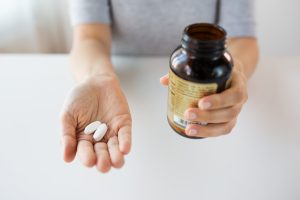Being diagnosed with chlamydia can be embarrassing and leave you scared and alone. However, treatments available can help you eliminate the infection and move on with your life. One such treatment is doxycycline, which is an antibiotic. Read on to learn more about using doxycycline for chlamydia.
Can Doxycycline Cure STDs?
Yes, doxycycline can cure chlamydia and other Sexually transmitted infections. However, it is essential to note that doxycycline will only cure bacterial infections. Therefore, it will not prevent you from getting re-infected with chlamydia or other STDs in the future.

Can You Use Doxycycline for Chlamydia?
Yes, doxycycline is an effective antibiotic for treating chlamydia. The Centers for Disease Control and Prevention (CDC) recommends that people with chlamydia take doxycycline or another antibiotic called azithromycin to treat the infection.
Doxycycline is a tetracycline antibiotic. It works by arresting the growth and multiplication of bacteria in the body. This helps to kill the bacteria and clear the infection.
Warnings and Precautions Before Using Doxycycline
Stay away from using doxycycline if you are allergic to it or any other ingredient in the medication.
Your skin can become sensitive to sunlight as a result of using doxycycline. You should avoid direct sunlight exposure and wear protective clothing and sunscreen outdoors.
Doxycycline may also cause stomach upset, diarrhea, and vomiting. These side effects are usually mild and can go away on their own.
If you notice severe adverse effects, such as difficulty breathing or swallowing, or swelling of the face, throat, lip, or tongue, stop taking doxycycline and seek immediate medical attention.
Drinking on doxycycline may not be particularly hazardous, but it can reduce the drug’s effectiveness. If you can help it, don’t drink alcohol.
Doxycycline is generally safe for use during pregnancy. However, you should talk to your doctor if you are pregnant or planning to become pregnant before taking this medication. Doxycycline is an effective antibiotic for the treatment of chlamydia.
However, taking all the medication prescribed is essential, even if you feel better after a few days. This will help prevent a resurgence of the infection. Talk to your doctor if you have questions about taking doxycycline to cure genital chlamydia.
How To Use Doxycycline to treat Chlamydia
The recommended dose of doxycycline for the treatment of chlamydia infection is 200 mg on the first day, followed by 100 mg once daily for seven days. You should take this medication with a full glass of water.
It is best to take it on an empty stomach, at least one hour before or two hours after meals. You should take doxycycline as soon as possible after exposure to chlamydia.
Suppose you miss a dose of doxycycline, ensure to take it as soon as possible. However, if it is almost time for your next dose, skip the missed dose and return to your regular dosing schedule. Do not take two doses at once.
You should take doxycycline until you finish the prescription, even if you feel better before then. Suppose you stop taking doxycycline too soon or skip doses against the recommendation. In that case, the bacteria may become resistant to antibiotics, and your infection may not be treated entirely.
However, this medication may not suit everyone, so you must ask your doctor before using it. For example, doxycycline may not be recommended for pregnant women or children under the age of eight. Talk to your doctor if you have questions about taking doxycycline for chlamydia treatment. They will be able to advise you on whether this is the treatment option for you.
Doxycycline for Chlamydia Dosage
The standard chlamydia treatment for doxycycline is 200 mg on the first day, followed by 100 mg one time daily for seven to ten days. You should start feeling better within a few days, but make sure you finish the whole course of medication. If you don’t, the chance of the infection returning and becoming harder to treat is high.

How Long Before Doxycycline Treats Chlamydia Symptoms?
It typically takes doxycycline seven to fourteen days to cure chlamydia symptoms. Sometimes, the medication may take a long time to be effective. Contact your doctor if you do not see any improvement in your symptoms after two weeks of treatment. Your doctor may recommend an alternative treatment course.
Can Doxycycline Clear Chlamydia in 3 Days?
No, doxycycline will not clear chlamydia in three days. It takes at least seven days for the medication to be effective. Contact your doctor if you do not see any improvement in your symptoms after two weeks of treatment. Your doctor may recommend an alternative treatment course.
For instance, the Centers for Disease Control and Prevention (CDC) recommend azithromycin for chlamydia. Ensure you use the drug as the prescribed dosage and finish the entire course of treatment, even if your symptoms disappear.
Alternatives to Doxycycline for Chlamydia
If you are allergic to tetracyclines or doxycycline, there are other antibiotics you can use for chlamydia. These include:
- Erythromycin
- Levofloxacin
- Ofloxacin
- Azithromycin
Speak with your doctor about which antibiotic is best for you.
In addition to taking antibiotics, you can do a few other things to speed up your recovery from chlamydia and prevent the infection from returning. These include:
- Drinking plenty of water
- Avoiding douching or using scented soaps or sprays on your vagina
- Wearing loose-fitting, breathable clothing
- Avoiding sexual activity until you’ve completed your course of antibiotics
If you have chlamydia, you must tell your current and previous sexual partners so they can get tested and treated. Chlamydia is an STI that can be passed from person to person through unprotected vaginal, anal, or oral sex.
Can I Take Azithromycin and Doxycycline?
You may have heard that you can take azithromycin (Zithromax) and doxycycline simultaneously for chlamydia. While this is true, there’s no evidence to suggest that this combination is more effective than either medication alone. In fact, taking both antibiotics may increase your risk of developing antibiotic-resistant bacteria.
Azithromycin is the preferred treatment for chlamydia if you’re pregnant or breastfeeding. Doxycycline isn’t recommended for pregnant women or young children because it can cause permanent tooth discoloration in infants.
Where Can I Buy Doxycycline?
You can purchase doxycycline online or from a pharmacy. If you buy doxycycline online, make sure that the website is legitimate and licensed to sell prescription medications.
When To Consult Your Doctor
You must consult your doctor if you experience any of the following symptoms while taking doxycycline:
- Difficulty breathing
- Hives
- Swelling of the face, lips, face, or throat
These symptoms indicate that you may be experiencing an allergic reaction to doxycycline. Do not hesitate to seek medical attention if you experience any of these highlighted symptoms.
Doxycycline is a safe and effective medication for treating chlamydia. However, as is typical with any drug, specific risks and side effects are associated with its use. Ensure to inform your doctor about these before starting treatment. Nevertheless, with proper care, doxycycline can help you clear your chlamydial infection and get back to enjoying your life.
Does Past Infection With Chlamydia Make a Person Immune?
No, past infection with chlamydia does not make a person immune. In fact, people who have had chlamydia are at an increased risk of contracting the disease again. This is because the bacteria that cause chlamydia can live in the body for months or even years without causing symptoms. This means that you could have genital chlamydia and not even know it.
Sometimes, the symptoms of chlamydia do not manifest at all, and you will only know you have the infection when you are tested for it. This is why it is so important to get tested regularly, especially if you are sexually active.
Frequently Asked Questions
The best treatment for chlamydia is antibiotics. Doxycycline is a common antibiotic usually used to treat chlamydia.
No, chlamydia will not go away on its own. If you have chlamydia, it is vital to seek treatment to clear the infection and reduce your risk of complications.
Yes, chlamydia can stay in your system for weeks or months, even if you get rid of it with antibiotics. This is why finishing all your antibiotics and getting retested after treatment is essential. If you don’t finish your antibiotics, the infection can come back. And if you have chlamydia more than once, it can increase your risk of severe health complications, including infertility.
The short answer is no. While chlamydia can go away within a few days, it is more likely that the infection will stay in your system for weeks or months. This is why finishing all your antibiotics and getting retested after treatment is essential.
It is not uncommon to still experience chlamydia symptoms for a few days after completing the dosage of antibiotics because it takes time for the infection to clear from your system. Therefore, you must contact your healthcare provider if you are still experiencing symptoms after a few days.
Conclusion
Chlamydia is a widespread STI that can be easily treated with antibiotics. Doxycycline is an effective antibiotic for treating chlamydia. However, it can cause side effects, so it’s important to follow your healthcare provider’s instructions carefully.
Consult your healthcare provider if you have more concerns or questions after taking doxycycline for chlamydia. This way, you can ensure that the benefits of taking doxycycline outweigh the risks.





